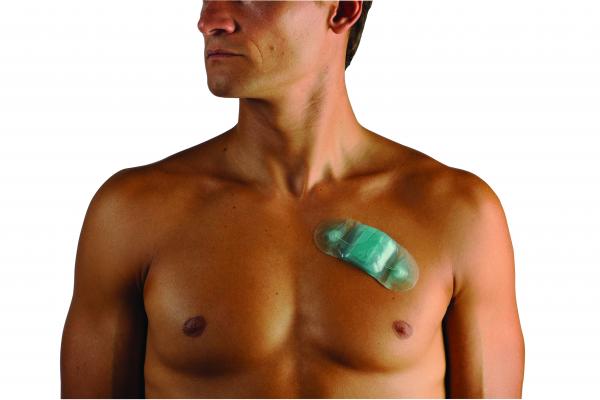
May 21, 2014 — iRhythm Technologies Inc. announced that data from four studies presented at Heart Rhythm 2014, the Heart Rhythm Society's 35th Annual Scientific Sessions, support the use of the company's Zio Service to identify atrial fibrillation (AF) and other cardiac arrhythmias.
AF is the most common type of arrhythmia, affecting nearly 2.7 million people in the United States. Data show that AF elevates a patient's risk of ischemic stroke by five times, making its timely diagnosis critical so that proper treatment may be initiated. The Zio Service enables long-term continuous monitoring — using a novel, small, wearable patch — to detect AF and other episodic heart rhythm disturbances that are often challenging to identify using current methods.
"We presented two studies evaluating the Zio Patch in real world situations," said Mintu Turakhia, M.D., MAS, assistant professor at Stanford University. "In the first study, we found that conversion to the Zio Patch, worn on average for 11 days, compared to traditional monitors, worn on average for one day, was associated with increased yield of atrial fibrillation, which can cause stroke if untreated. In the second study, we found that in one out of every nine subjects who had heart disease but no history of arrhythmias, the Zio Patch detected arrhythmias that may lead to stroke, even though the subjects had no awareness of them. These findings underscore the importance of extended monitoring and the potential value of screening for silent heart rhythm disorders."
The following abstracts were presented at Heart Rhythm 2014:
- "Comparative Effectiveness of 14-Day Zio Patch-Based Versus 24-Hour Holter Ambulatory ECG Monitoring for Atrial Fibrillation: Insights from an Interrupted Time Series Analysis" (Poster Session II/Poster #173) This study of 76 patients found that the Zio Service identified nearly five times as many cases of AF in the same amount of study time, compared to the Holter monitor (24% diagnostic yield vs. 5%), after the integrated healthcare system providing care phased out 24-hour Holter monitoring and replaced it with continuous monitoring for up to 14 days using the Zio Service.
- Feasibility of Outpatient Ambulatory ECG Monitoring to Screen for Silent Atrial Fibrillation (Poster Session III/Poster #173) This study demonstrated the potential for extended screening using the Zio Service to identify AF among asymptomatic, high-risk patients in an integrated healthcare system. The Zio Service identified AF in more than 5 percent of patients with two or more risk factors, but no history of AF. The authors conclude that such detection could lead to treatments, such as stroke prevention, that could meaningfully improve survival.
- Impact of a Novel Ambulatory ECG Monitoring Technology in an Urban Safety Net Hospital (Poster Session III/Poster #43) These interim study results demonstrated that use of the Zio Service in an urban hospital caring for underserved patients could significantly reduce wait times for ECG monitoring and results. Much of the decreases may be attributed, conclude the authors, to offloading of time-consuming operational duties such as data upload and preliminary review, which are handled by iRhythm.
Another abstract presented at the meeting was:
- Diagnostic Yield of Ambulatory ECG Patch Monitoring in Children from a National Registry (Poster Session II/Poster #198) Researchers found that the Zio Service was able to detect cardiac arrhythmias in pediatric patients and that more than half of the arrhythmias were first detected after 48 hours of monitoring — meaning they would have been missed by the traditional 24- to 48-hour Holter monitor.
For more: www.irhythmtech.com


 January 05, 2026
January 05, 2026 









